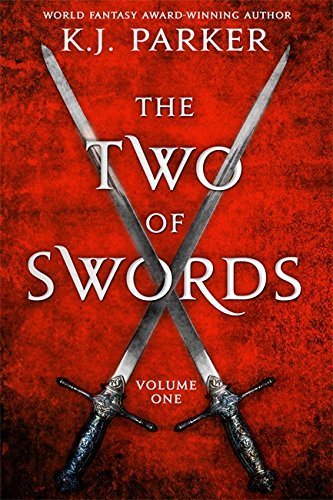What do you think?
Rate this book


World Fantasy Award-winning fantasy author K. J. Parker delivers his most ambitious work yet - the story of a war on a grand scale, told through the eyes of soldiers, politicians, victims and heroes.
A soldier with a gift for archery. A woman who kills without care. Two brothers, both unbeatable generals, now fighting for opposing armies. No one in the vast and once glorious United Empire remains untouched by the rift between East and West, and the war has been fought for as long as anyone can remember. Some still survive who know how it was started, but no one knows how it will end. Except, perhaps, the Two of Swords.
438 pages, Kindle Edition
First published October 17, 2017
There is a war that has been going for longer than anyone can remember, for reasons that nobody seems to know; all that is known that war between the East and West Empires, is fought between two of the greatest militantly minds that have ever lived - and who also happen to be brothers.
They could see the gate clearly. It was open. "There's got to be some perfectly simple explanation," someone said.
(Yes, Daxen told himself, I can think of one. But it can't be that, because there aren't any bodies. There's no smell. Two hundred thousand bodies, at least a week in the hot sun, there'd be a smell all right. But the only smell was jasmine, from the fields to the east where they grew it for the perfume trade. So it couldn't be that. The end of the world would never smell like jasmine.)